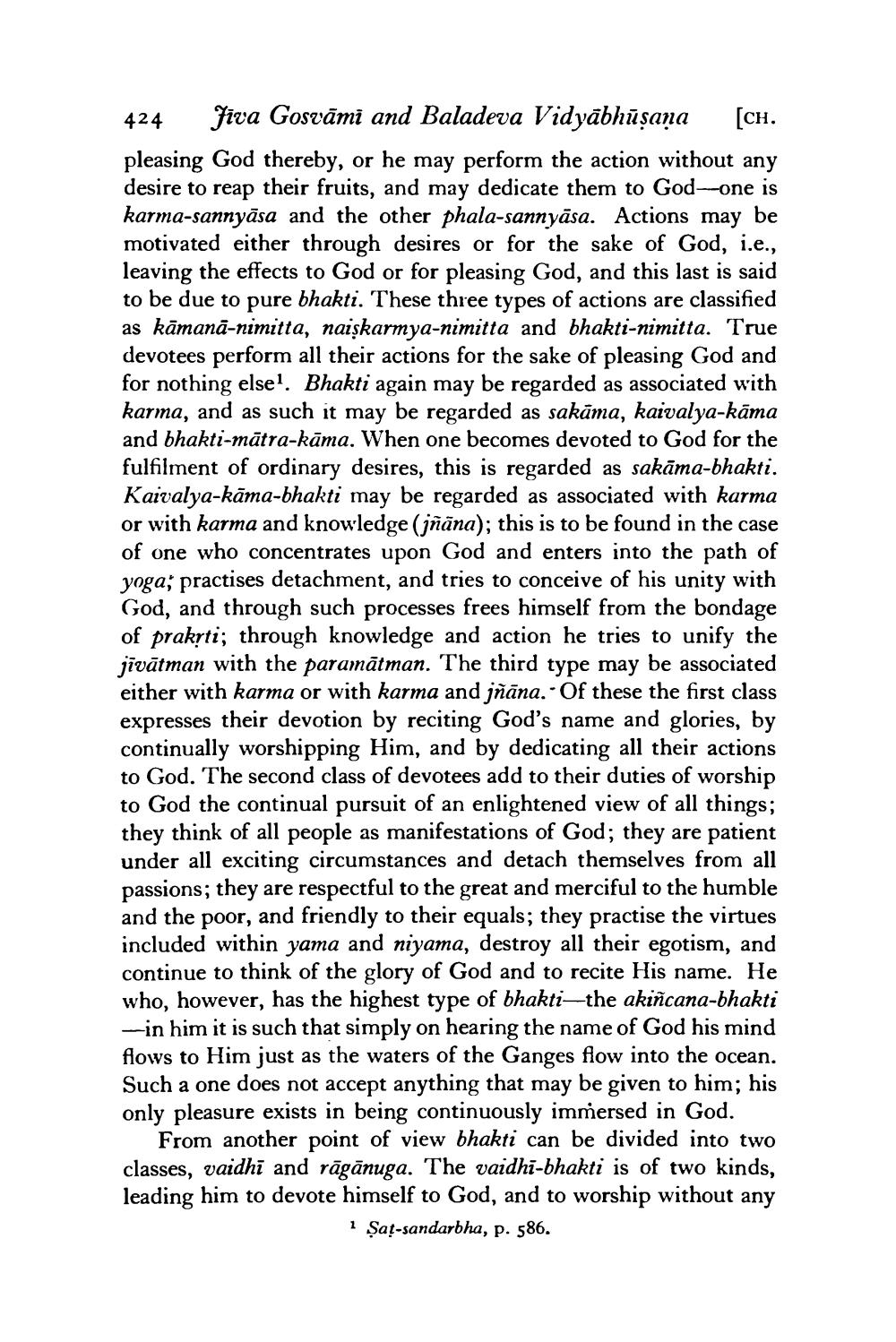________________
424 Jiva Gosvāmi and Baladeva Vidyābhūsaņa [ch. pleasing God thereby, or he may perform the action without any desire to reap their fruits, and may dedicate them to God-one is karma-sannyāsa and the other phala-sannyāsa. Actions may be motivated either through desires or for the sake of God, i.e., leaving the effects to God or for pleasing God, and this last is said to be due to pure bhakti. These three types of actions are classified as kāmanā-nimitta, naişkarmya-nimitta and bhakti-nimitta. True devotees perform all their actions for the sake of pleasing God and for nothing elsel. Bhakti again may be regarded as associated with karma, and as such it may be regarded as sakāma, kaivalya-kama and bhakti-mātra-kāma. When one becomes devoted to God for the fulfilment of ordinary desires, this is regarded as sakāma-bhakti. Kaivalya-kāma-bhakti may be regarded as associated with karma or with karma and knowledge (jñāna); this is to be found in the case of one who concentrates upon God and enters into the path of yoga, practises detachment, and tries to conceive of his unity wi God, and through such processes frees himself from the bondage of prakrti; through knowledge and action he tries to unify the jīvātman with the paramātman. The third type may be associated either with karma or with karma and jñāna.. Of these the first class expresses their devotion by reciting God's name and glories, by continually worshipping Him, and by dedicating all their actions to God. The second class of devotees add to their duties of worship to God the continual pursuit of an enlightened view of all things; they think of all people as manifestations of God; they are patient under all exciting circumstances and detach themselves from all passions; they are respectful to the great and merciful to the humble and the poor, and friendly to their equals; they practise the virtues included within yama and niyama, destroy all their egotism, and continue to think of the glory of God and to recite His name. He who, however, has the highest type of bhakti—the akiñcana-bhakti -in him it is such that simply on hearing the name of God his mind flows to Him just as the waters of the Ganges flow into the ocean. Such a one does not accept anything that may be given to him; his only pleasure exists in being continuously immersed in God.
From another point of view bhakti can be divided into two classes, vaidhi and rāgānuga. The vaidhī-bhakti is of two kinds, leading him to devote himself to God, and to worship without any
1 Șat-sandarbha, p. 586.




